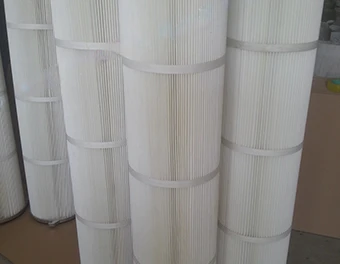 Tel:
+8615930870079
Tel:
+8615930870079
Nov . 24, 2024 19:40 Back to list
Improving Efficiency with Gas Turbine Inlet Filtration Systems for Enhanced Performance
Gas Turbine Inlet Filters Essential Components for Optimal Performance
Gas turbines are vital components in various applications, including power generation, aviation, and industrial processes. These machines are renowned for their efficiency and ability to convert fuel into mechanical energy. However, to ensure their optimal performance and longevity, specific precautions must be taken, particularly concerning the air they intake. This is where gas turbine inlet filters come into play.
The Importance of Inlet Air Quality
The air entering a gas turbine must be free from contaminants such as dust, dirt, and other particulate matter. These contaminants can cause significant damage to the turbine's internal components, leading to reduced efficiency, increased servicing costs, and potential engine failure. Therefore, maintaining high air quality is essential for the reliable operation of gas turbines.
Inlet filters are designed to remove these impurities from the air before they enter the gas turbine. By ensuring that only clean air reaches the engine, these filters help maintain the turbine's performance, enhance its durability, and reduce maintenance intervals.
Types of Gas Turbine Inlet Filters
Gas turbine inlet filters come in various designs and configurations, depending on the specific needs of the application and the environmental conditions in which the turbine operates
. The most common types of filters include1. Panel Filters These are typically used in industrial applications where air quality can vary significantly. Panel filters are designed with multiple layers of filtration media that capture a broad spectrum of particle sizes.
2. Bag Filters These filters are effective for high dust-loading environments. They consist of extended surface area bags that capture larger amounts of particulate matter without clogging quickly.
3. Pre-filters These are often used in conjunction with other filter types to extend the life of the more expensive primary filters. Pre-filters catch larger contaminants, preventing them from reaching the primary filter.
gas turbine inlet filter

4. HEPA Filters High-Efficiency Particulate Air filters are used in environments requiring extremely clean air, such as research laboratories or pharmaceutical production facilities. HEPA filters can remove at least 99.97% of particles as small as 0.3 microns.
5. Water Washable Filters These filters can be cleaned and reused, making them a cost-effective option. They are particularly beneficial in coastal areas where salt and moisture can pose additional challenges.
Filter Maintenance and Monitoring
Regular maintenance of gas turbine inlet filters is crucial to ensuring optimal performance. Dirty or clogged filters can restrict airflow, resulting in decreased efficiency and increased fuel consumption. It's essential to monitor the differential pressure across the filter elements, as a significant increase can signal that the filters need replacement or cleaning.
Some advanced systems include automated monitoring with pressure sensors that can alert operators when filtration efficiency is dropping, thus allowing for timely intervention before performance starts to decline noticeably.
The Role of Technology in Filter Design
Recent advancements in filtration technology have led to the development of more efficient and effective filter materials. Innovations such as nanofiber technology and synthetic media offer improved dust-holding capacity and lower resistance to airflow. These advancements not only enhance the performance of gas turbine inlet filters but also contribute to overall energy savings by reducing the workload on the turbine.
Additionally, manufacturers are increasingly using computational fluid dynamics (CFD) to optimize filter design, ensuring that air flows optimally through the filter media, further improving efficiency and performance.
Conclusion
In conclusion, gas turbine inlet filters are critical components in maintaining the performance and reliability of gas turbines across various applications. By ensuring that only clean air enters the turbine, these filters play a significant role in prolonging the lifespan of the engine, enhancing efficiency, and reducing maintenance costs. With advancements in filtration technology and monitoring systems, the future of gas turbine inlet filters looks promising, ensuring that turbines can operate optimally in a variety of environments. As the demand for cleaner energy continues to grow, the importance of effectively managing the air quality entering gas turbines will only increase, reinforcing the vital role these filters play in modern energy production.
-
Types and Applications of Air Filtration CartridgesNewsJul.28,2025
-
The Role of Gas Turbine FiltersNewsJul.28,2025
-
Mastering Air Filter Cartridge UseNewsJul.28,2025
-
Advanced Turbine Filters for Modern Gas TurbinesNewsJul.28,2025
-
Cellulose Air Filter Cartridge Advantages in Dust FiltrationNewsJul.28,2025
-
Cellulose Filters for Air Particle ReductionNewsJul.28,2025

 Email:
Email:





